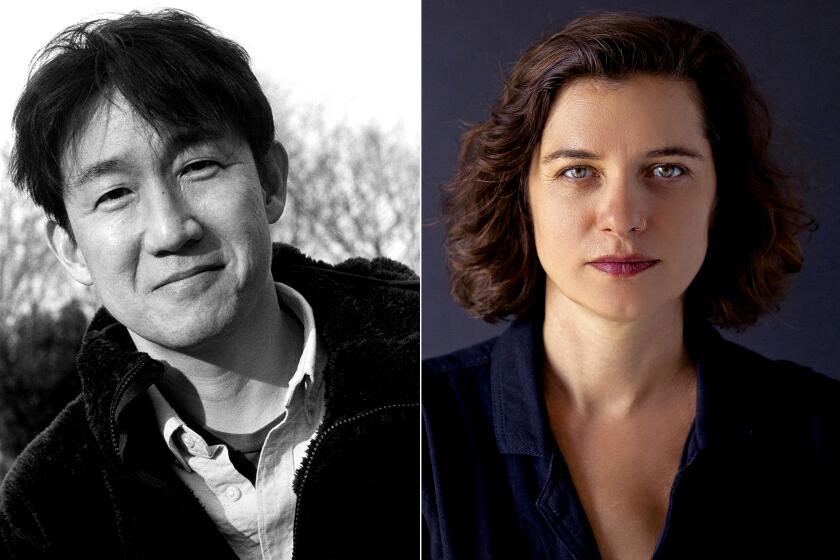Undramatic Tchaikovsky in Long Beach
Timothy Muffitt, the third of five music director candidates conducting the Long Beach Symphony this year, seems to favor smooth, rounded physical and conceptual gestures.
At best, this leads to an oceanic, tidal wave pull and force in the music. At worst, it means turning in place without going anywhere.
Unfortunately, in a three-part concert Saturday at the Terrace Theater, the big piece, Tchaikovsky’s Symphony No. 4, which closed the program, suffered the most by going nowhere.
In the concert prologue, the personable music director of the Baton Rouge Symphony in Louisiana said he saw the music as Tchaikovsky’s escape from fate and reality through dreams and imagination.
That may have explained the lack of tension, fight and conflict in his interpretation. Tchaikovsky was defeated from the start. This was manifested by Muffitt’s enforcing homogenous textures and undifferentiated phrasing. The result was a symphony far more lyrical than dramatic.
Quite different was the Suite No. 2 from Falla’s “The Three-Cornered Hat,” which opened the program. Here, especially in the first section, Muffitt made the music move with an irresistible sweep.
Best of all was Lowell Liebermann’s Concerto for Flute, Harp and Orchestra, with flutist Heather Clark and harpist JoAnn Turovsky. Again, Muffitt ensured a sense of forward motion as Clark’s sinuous, melodic flute line exfoliated onto higher and higher planes. Turovsky supplied beautiful cascading arpeggios.
More to Read
The biggest entertainment stories
Get our big stories about Hollywood, film, television, music, arts, culture and more right in your inbox as soon as they publish.
You may occasionally receive promotional content from the Los Angeles Times.






